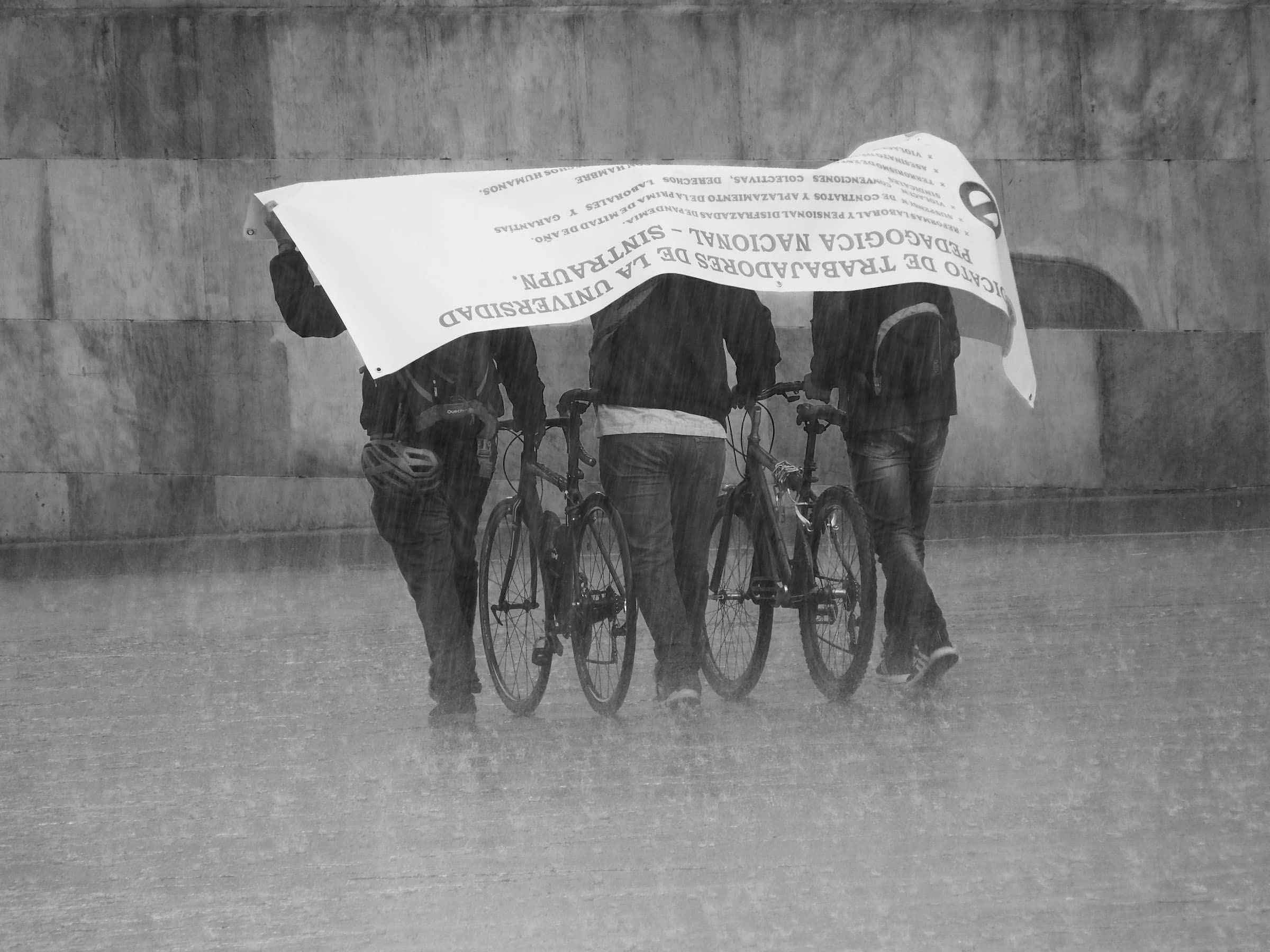
The Middle Classes Won’t Take Us to a Democratic Paradise
In 2016, the Fuerzas Armadas Revolucionarias de Colombia (FARC) and the government of Juan Manuel Santos (2010-2018) signed a peace agreement to end an armed conflict that lasted over 50 years. Although the agreement has addressed a number of questions—in particular, the crucial demand for land redistribution—the idea of an urban middle class in Colombia has shaped the different, if polarizing, responses to the agreement and its aftermath. During the negotiations, Santos often argued that, once peace arrived, a social market economy, a harmonious society of classes, and free enterprise endeavors would translate into the expansion of a powerful middle class. Álvaro Uribe Vélez, former president (2002-2010), a senator (2014-2020), and the most outspoken critic of the peace negotiations, often said an agreement would destroy the middle class society his government policies had presumably created. Thus, although Santos and Uribe Vélez differed on what the peace agreement could bring to the nation, they agreed that a middle class in Colombia would take the nation from a conflict-driven, violent, and antidemocratic past into a conflict-free, peaceful, and democratic future.
Interviewed before and during the peace process, these visions of society and peace shaped how middle class people recalled their pasts. By portraying themselves as the future of democracy in a post-conflict era, they remembered their pasts since the 1970s by evoking stories of economic productivity, profitability, individual effort, and competition. They recalled daily battles to balance costs and benefits to achieve a middle-class status. They fondly remembered deliberating a mortgage—having “a place to live [was] a major investment in family life . . . the first time you felt you really owned something: a house!”—and the pleasure of “not depend[ing] on anybody, not [being] renters anymore.” They fervently recounted investing in their children’s education and the moments of joy when this brought a better future. They recalled “the unforgettable names” they came up with for their first cars, meant to make the family aware of “how hard [they had] worked to get the car . . . in life…everything had to be earned.” They described getting credit loans from their service companies or government offices, cooperatives, or recently founded corporations to purchase appliances. They wanted to show how their privileged lives were an endless adventure in which they had to juggle family incomes, negotiate household expenses, strategize long-term investments, and take advantage of saving opportunities in order to be part of a middle class in Colombia. After all, they proclaimed, “life [had] always been a business in which some lose and some win.”*
The lawyer Barbara Vega, for instance, recalled how she and her husband, also a lawyer and her “partner in the business of life,” began to work hard to achieve economic security and some social tranquility sometime in the second half of the 1970s. Often disregarding major political mobilizations of that decade, Vega told the stories “of successful people like [her], ” a story of social progress through individual exertion, not politics or pointless demonstrations. “I could not forget the 1970s,” Vega insisted, because it was then when she began to build toward becoming “an educated woman, a married one with a husband as a partner, a mother with two successful children, a homeowner, a socially recognized woman.”*
From “a humble family,” she grew up in a small town close to Bogotá, the capital city. Her father, a state employee secured her a state scholarship to attend college in the early 1970s. After graduation, Vega specialized in labor law and social security at Universidad Nacional de Colombia where professors, noticing her commitment “to become somebody in life,” assisted her in finding employment in the public and private sectors. By the early 1980s, she realized that “education could not be stolen,” that “what you learn is who you are. With opportunities to be educated, you can do whatever you want. Education is success.”*
In her recollections, Vega positioned education alongside, and sometimes in open contradiction with, individual entrepreneurship. Her achievements as a middle class woman came from her own individual merit: “Nobody has given me anything . . . as a middle class woman I have made myself [through] my work, my driven attitude to get things done.” This, Vega asserted, was the essence of middle classness, in contrast to “the lower classes,” among whom “there is a lot of violence, and invisibility” that prevents them from “rising out in society.” Effacing her humble origins, she contended that the popular groups had “not been able to take full advantage” of available economic and educational opportunities in society because “they want[ed] to put neither effort nor energy to excel in society. They [did] not want to compete.” Society, Vega explained, ensured that “people [got] what they deserved: if one worked hard, society made sure you would succeed.” Unlike others of her former class, and forgetting the role that her father or professors played in her economic success, Vega boasted that “I did not have to wait to be given anything, my education, merit, and individual effort, I was able to pull myself out from those humble origins to become part of a middle class.”*
These class distinctions anchoring Vega’s memories also inflected her sense of middle class femininity. She thought the label of feminist “too political” and in contradiction with her individual entrepreneurship: “I am not feminist . . . I have earned everything I own.” And yet she reclaimed one of feminism’s central political goals, “the equality of women and men: All my life I have fought hard for women to have the same opportunities as men.” These contradictions allowed Vega to remember the 1970s as when she both questioned the idea that middle class men needed to be the main economic provider and hierarchically distinguished herself from working-class and elite women. She took pride in having been “the mother . . . the main provider for [her] siblings” after her mother’s death in the 1970s, helping to “move [her] siblings forward.” She also positioned her middle class, feminine entrepreneurship against “elite women,” who made no effort to “achieve something for themselves” and instead had their “husbands do everything for them.” Vega’s sense of class belonging was reinforced by her husband, who though “sometimes jealous of [her] professional success . . . never prohibited [her] from working,” in contrast to both “poor men and rich men,” who allowed their wives to “stay home all day” and thus make them “parasite[s].”*
And all of them saw education as an investment in middle class status, fostering entrepreneurial individuality as the key to succeed in life. Or, paraphrasing Vega, democracy is a struggle between winners and losers, a democratic life must be practiced as a business model in search of individual profit, and private property must be the measure of social worthiness in democracies.
Yet Vega stressed how difficult it was to balance “the cost and benefits of achieving a professional life and succeeding as a mother.” But this was an unavoidable consequence of what she had learned in the 1970s: that one came to “this world to compete, to triumph, and to progress.” “To get stagnated,” she confidently said, “was to go backwards in society.” Vega wanted her sons to outdo her without losing middle class values. Vega distinguished between achieved status and class belonging. The former flowed from individual entrepreneurship, “an effort to improve oneself for the sake of overcoming oneself,” so that new generations could achieve more education, better incomes, more social recognition, and leadership roles in society. The latter, “a social awareness of belonging to the best class in history,” morally qualified the former. She did not want her sons to become “elitist or rich kids” for whom individual effort, social responsibility, and hard work were unimportant. “I taught them,” she asserted, “that everything you achieve in life [had] to be fought for,” and she “wanted them to be good people. . . to get married with good women and have happy families.” She wanted them to “plan their life and economic goals [through] sacrifice, effort, honesty, fitness, and discipline.” In open contradiction with how she explained her own middle class belonging, she took pride in noting how she, along with her husband, had offered her sons “the best opportunities they could get: paying for the best education possible, giving them the chance to travel abroad, offering them the possibility to learn a foreign language.”*
Democracy Rule
What do we make of Vega’s story in the current context of economic crisis? Some might debunk her memories. Others might dismiss Vega’s recollections as those of a social climber who embraced elite interests. Others might say that amid growing material inequality, these middle class experiences in Colombia are disappearing. Although reasonable, these responses miss what Vega’s story makes evident. She seemed eager to remember the past in a certain way, praising individual entrepreneurship and celebrating class privileges as democratic. The role of the state was highlighted as providing opportunities for education, the key to economic success. But in her memories, the market was also celebrated as the place where such success could happen. There was no effort to hide class status or gender stratifications. Nor was there a lack of awareness regarding her own position in these hierarchies. Quite the opposite: class status and gendered privileges were venerated precisely because for people like Vega her middle class life obviously represented democracy. Or, as Alejandro Hurtado, a small-business owner in Bogotá put it: “If middle class people like me are not what democracy should be, then I have no clue what democracy is.”*
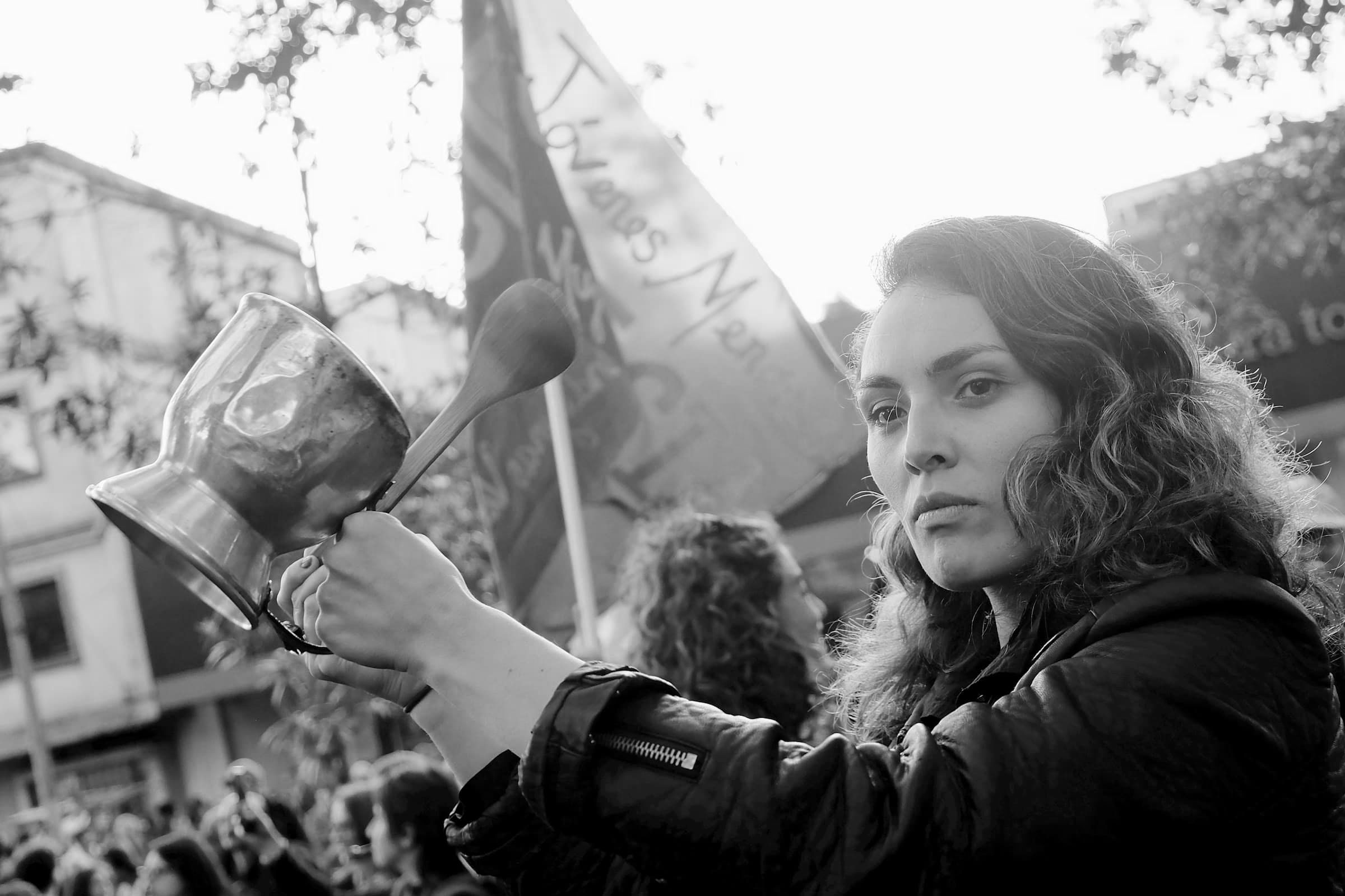
These stories are often evoked to prove that democracy is in crisis. They are seen as a reality of the past, and proof that the middle classes are disappearing in the present. Upward mobility has declined or at least stagnated, as now few get a chance to materialize a comfortable middle class life defined by social mobility, consumption, home ownership, access to education, and a “decent job.” Wealth has increasingly become concentrated. Societies across the world have become polarized into two homogeneous social groups in a class war: a shrinking upper class and the working poor. The result: political instability, political radicalization, economic inequality, and social conflict. And those who have achieved such a privileged or secure life worry they, or their children, might soon lose this status. The expansion of nationalist politics, the election of populist leaders, and the growth of violence have become common. Is this history going backwards? Are we seeing an emergence of a neo-feudal society led by the elite while the middle classes, presumably the key to democracy, decline, as some often worry? The COVID-19 pandemic, and its related economic downturn, has only exacerbated this situation.
Western Middle Class as “Saviors” of the World
But how did we get here? There are several explanations. In the United States, for instance, some scholars, politicians, and policy-makers charge that globalization is the reason for the decline of the US middle classes. Indeed, they consider the US middle classes “the losers of globalization,” and in that loss, opportunities have appeared in other parts of the world (specifically India and China) to catch up with the “American way of life.” The American middle class standard of living seems to have evaporated as international economic competition pushes prices up, thus forcing the US to struggle to maintain its middle class status. Outsourcing jobs, seen as “American jobs” in contemporary media, has sacrificed the economic status of middle class workers.
It is indeed the vanishing middle classes that many see as the main cause for democracy losing political currency in North America. Once thriving, the middle classes are now too thin to buffer class conflict.
American scholars and pundits alike panic at the current situation. They mostly blame immigrants from “third world countries” who have come to America and are competing for the “American jobs.” Others argue the problem is “cultural” as certain middle class values—self-sufficiency, economic independence, achieved status, order, and discipline—are supposed to be foreign to these immigrants, making them unfit to assimilate to a presumed US national reality. In short, immigrants are seen as a “threat” to the nation—to the public—as they do not follow Western Christian values, supposedly the backbone of a harmonious society predicated on a middle class. Still others blame globalization and its dismissal of state power in its wake. This has given elites a free ride to accumulate wealth at the expense of other members of society. The state has been disempowered from disciplining capital accumulation, as corporations move across national borders to hire cheap labor and secure their profits.
Above all, the US’ once-great middle class has disappeared to produce a two-class society. Countless studies argue that the US has moved from being a world leader for democracy into a mere “third-world country.” Some claim widening economic inequality, political polarization, racial tensions, and class conflict brought Donald Trump to the White House and might keep him there. It is indeed the vanishing middle classes that many see as the main cause for democracy losing political currency in North America. Once thriving, the middle classes are now too thin to buffer class conflict.
North America has, as a result, entered a presumed new class war that is destroying democracy. This leaves policymakers with many questions, not the least of which is whether the US government should stop presenting the “American way of life” as an example for the world and should instead focus on reviving the American middle class at home. It cannot be seen as an accident that Joe Biden’s political platform is predicated on the need to rebuild the middle classes in the United States.
In Europe, similar explanations are offered. Amid a perceived threat to western values, scholars and policymakers complain that free-market policies—along with globalization and immigration—have also destroyed middle class societies. They evoke UK Prime Minister Margaret Thatcher’s statement that “there was no such thing as society but only men and women trying to get ahead.” Though Thatcher’s comment was made to illustrate the need for reduced public spending, contemporary policymakers have invoked it to describe the annihilation of a western middle class to the world. This logic then produces the argument that Europe is a former imperial force and should focus on reviving the middle class in Western European societies.
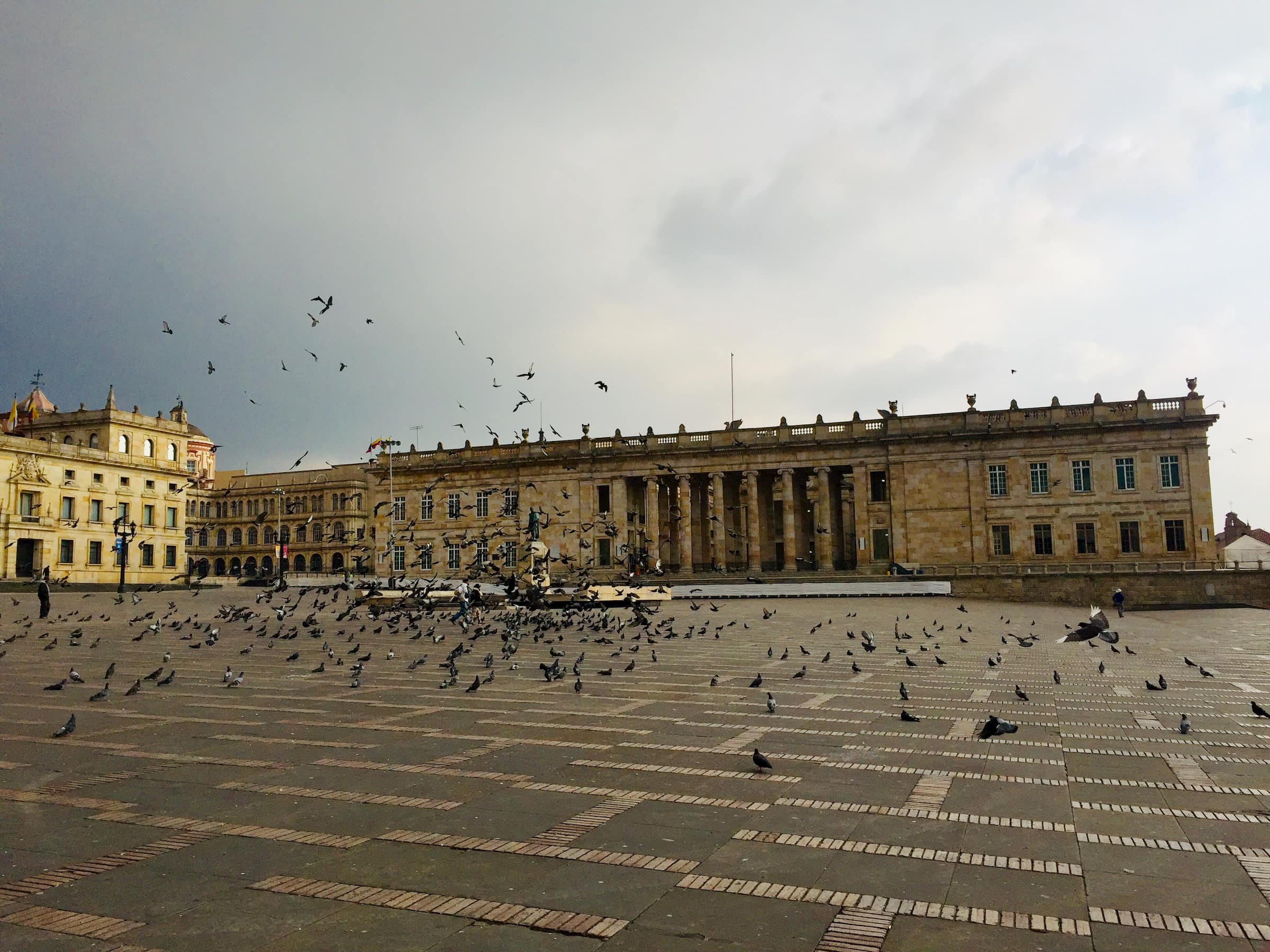
In a seeming contradiction to the above-described arguments about the loss of the middle class in Western countries today, policymakers and commentators in the United States and Europe have urged a “re-Westernization” at home. Calling for the expansion of middle class societies, in their opinion, could secure once and for all the superiority and distinctiveness of Western liberal democracies in the world. In particular, this effort to create a middle class could restore imperial leadership for the United States. Resurrecting some of the major arguments of the 1950s modernization theory, both scholarly studies and policy programs propose the creation of a “global middle class.”
Take, for instance, the much-celebrated bilateral Peace Colombia program between the United States and Colombia of 2016. This program served as a replacement for the 15-Year Plan of Colombia introduced in 1999, which was a military, counterinsurgent, and anti-drug cartels program. The new Peace Colombia program, established with $450 million in US aid, benefited from a significant increase from the previous year’s funding, but significantly less than in the 2000s, when most of the support was spent on military campaigns. Now, not only does the new program provide aid for society’s further militarization, but it also positions, via what are called “Economic Support Funds,” the middle class as central to peace and democracy. So, we are seeing here that democracy is dependent on something more than the middle class. Its material success is explicitly contingent on military force supported by the expansion, and one assumes collusion, of a healthy home-grown middle class (who supports this military through the taxes they pay, because, as we know, corporations and the elite rarely do so). In other words, the middle class in the Global North means violence and exploitation elsewhere.
This is not new. These international efforts draw on development programs such as the Alliance for Progress in the 1960s and free-market enterprises in the 1970s. In the Colombian case, they proclaimed that, with armed conflict in the past, all efforts could be dedicated to strengthening an extensive middle class that would provide a link between the rich and the poor and thereby become “the driving force for a full democracy.”
As important as these historical explanations have been to dismantle celebrations of globalization as a process of democratic expansion, these analyses assume that globalization will automatically leave behind a middle class society.
What to do then? The Return of the Middle Classes
But what exactly is at stake in all of these calls to rebuild the middle classes? For multiple development organizations, the task at this moment is as clear as it is difficult. The Organization for Economic Co-operation and Development (OECD), the body used by wealthy nations to disseminate development funds globally to “stimulate economic development,” argues that governments across the world need:
The argument they offer is that societies with strong middle classes tend to develop lower crime rates, secure greater political stability, and protect good governance. The middle class promotes consumption. It encourages investment in education. And education allows social mobility. It supports the economy through tax contributions. A middle class promotes higher levels of trust in governments. Middle class people often improve life satisfaction in societies.
Thus, the middle classes yet again emerge as the unquestionable measure of—and the solution for—the current crisis of democracy. It has become commonplace to argue that globalization—market-driven economies—have consolidated economic inequalities across the world, have put democracy in crisis, and have, in turn, destroyed middle class societies. Most scholars have criticized globalization as an anti-democratic capitalist economy. With this, we have studies demonstrating the consolidation of what widely-cited French economist Thomas Piketty calls “patrimonial capitalism” or what French philosopher Alan Badiou refers to as an “oligarchical capitalism.” Such forms of capitalism are characterized as a struggle between a two-class society advancing only the interests of global financial elites.
As important as these historical explanations have been to dismantle celebrations of globalization as a process of democratic expansion, these analyses assume that globalization will automatically leave behind a middle class society. Two camps of thought describe this. On the one hand, scholars define a two-class society as the struggle of the current economic crisis: anti-democratization, populism, authoritarianism, violence, tradition, and class exploitation. On the other, an expansive middle class is seen as democratization, peace, modernization, and class harmony. Democratization expands the middle classes, while globalization destroys democracy.
This forces an argument either for democracy (i.e., a middle class society) or against anti-democracy (i.e., two-classes in conflict). The study of the middle classes is perceived as less important because such analysis would get us away from what is considered the only manifestation of class exploitation and material inequalities. We understand that a two-class society is an anti-democratic process which leads to social instability, political radicalization, and economic inequality. At the same time, we think that an ever-expanding middle class as a response to such anti-democratic society is the only option to recuperate a democratic society beyond class conflict and exploitation.
Histories of Democracy and Middle Classness
But what if we break away from this assumption? What if we ask about the historical processes through which we have come to understand the middle classes as the main source for democracy? What about asking what we mean by democracy when we hope the expansion of a middle class translates by default into democratization? By asking these questions we might see democracy as contingent on history rather than its inevitable product. We could then move from assessing where the middle classes could be more or less democratic to a critical study of what it takes to live in a democratic society. If we do this, we can bring the many struggles over the meanings, identities, and practices of democracy into the historical terrain. This allows us to offer an important critique of democracy itself, understood not as an endpoint where hierarchies will at long last disappear. Rather, we can see it as a product of conflicting ideas, projects, and social conflicts through which different historical actors, by defining themselves as middle class, attempted to put class and gender hierarchies at the core of what democracy was supposed to do.
As Vega’s story suggests, in the second half of the twentieth century the formation of the middle class in Colombia was democratic precisely because, and not despite of, the middle class people who perpetuated hierarchical forms of gender and class exploitation. If we examine stories like hers for the meanings and practices of democracy, we see how unequal relationships and social inequalities, far from exceptions that violated, invalidated, or fell short of a true democracy, shaped multiple struggles for democracy during the second half of the twentieth century. Indeed, these stories allow us to see democracy—supposedly a transcendental good—with critical eyes.
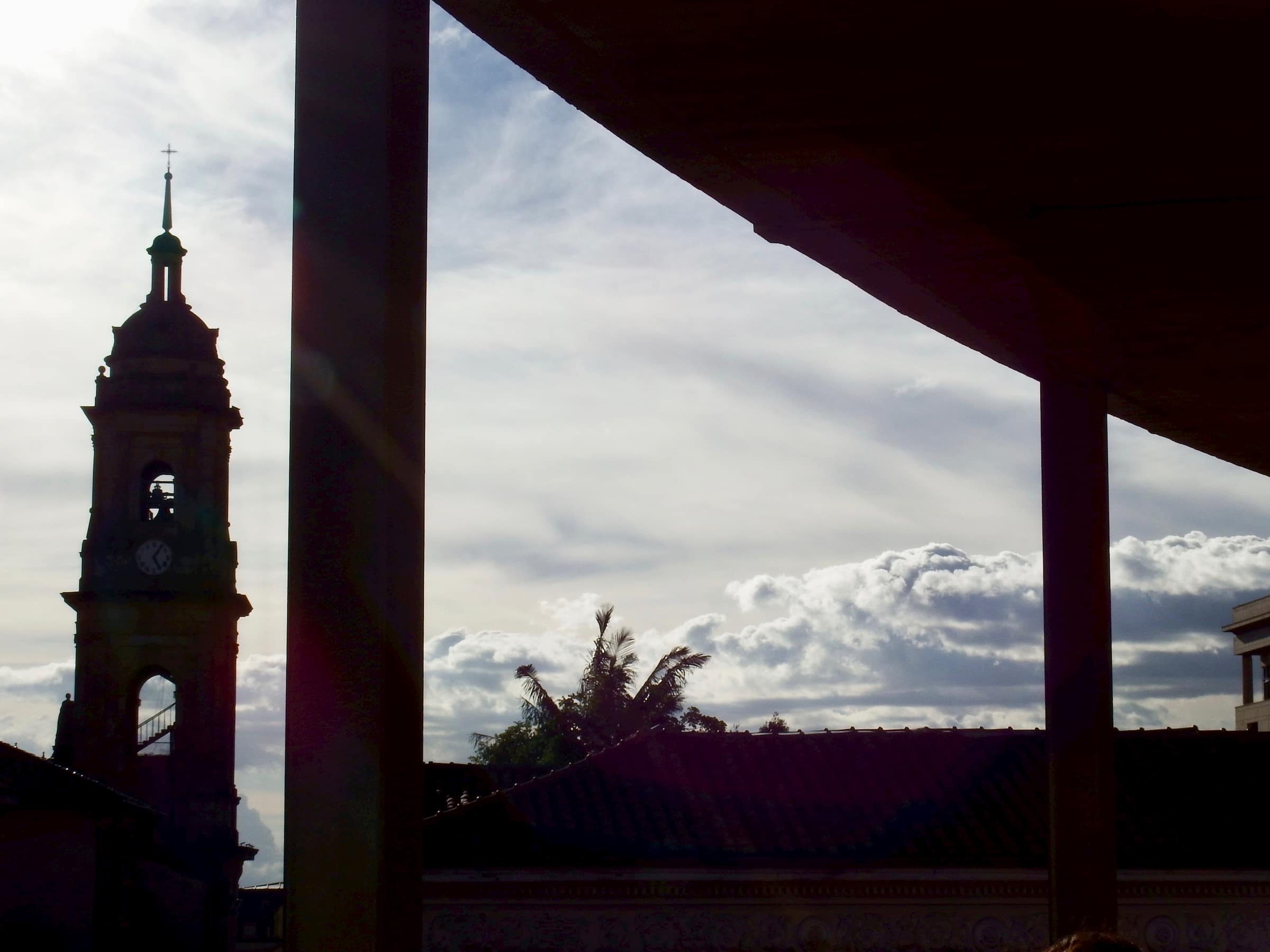
What did it take to live in a democratic society? What did it mean to be part of a middle class as a representation of democracy in the second half of the twentieth century? In the Colombian case, some middle class people struggled to create a democracy as a society of privileges. In so doing they connected access to private property with middle classness. Others emphasized that the right to represent “the people” in democracies needed to be associated with professional competence, intellectual labor, and expertise, central values associated with a middle class status. Others saw politics as the management of hierarchical class differences. Still, others privileged economic success as synonymous with middle class entrepreneurial individual endeavors. Yet others defended jobs in the service sector of the economy—in contradistinction to agricultural and industrial sectors—as the reality to be performed by those who could be categorized as middle class women and men. And all of them saw education as an investment in middle class status, fostering entrepreneurial individuality as the key to succeed in life. Or, paraphrasing Vega, democracy is a struggle between winners and losers, a democratic life must be practiced as a business model in search of individual profit, and private property must be the measure of social worthiness in democracies.
But it is also crucial to see how other middle class women and men struggled to create different, but equally hierarchical, visions of democracy. They proposed to see democracy as a society of rights. A vision of democracy where education was both a common social good and a central requirement for offering the working classes economic success. Access to land was seen as a question of labor, health could be defined as a right, labor relations were the product of conflict, public assembly was fundamental to political participation, and social relations were marked by solidarity. A society of rights in which everyone—and not just anyone—lay claim to education, material welfare, cultural difference, and political recognition.
What these struggles show is precisely how the first vision began to exhaust what it meant to live in democracies while excluding other visions of middle class democracy as impracticable and disposable. This story leads us to ask an important question: What vision of democracy is envisaged when policymakers and politicians argue for the creation of a “global middle class,” advocate for the return of a Western middle class in the Global North, or pose the middle class as the future of a peaceful Colombia? It is in fact the first vision as described above, a very particular definition of democracy: a stratified society in which poverty is justified under the guise of competitive individualism, rights are seen as competition for privileges, and a hierarchical three class society gets celebrated as a peaceful cohabitation, often doing nothing to alleviate suffering. Above all, it is a vision of democracy that readily justifies the unequal distribution of world’s wealth. Or, as Vega said, “If you are poor it is because you want to be poor, you deserve to be poor… If I became middle class anyone can do it…it is the effort you put into things.”*
Why does this matter at the moment when we feel compelled to “save democracy”? I offer that what we might want to do is to think of democracy as a question to which we need to offer new and alternative answers. It might give us pause to ponder what we mean by middle class democracies, the idea and practice we are persistently told that our globalized societies cannot live without. This is not to say the middle classes are not democratic. Nor is it to say we need to create a middle class society. These arguments still tell us that if a middle class really exists, we would be in a more democratic present. I suggest instead that the present situation, far from being the only natural or only possible social order, is the historical product of power relations in which both the idea and practice of the middle class serves as a proper hierarchical organization of society for a particular form of exploitation we often celebrate as democracy.
What if we ask about the historical processes through which we have come to understand the middle classes as the main source for democracy? What about asking what we mean by democracy when we hope the expansion of a middle class translates by default into democratization?
This argument ought to invite us to unlink democracy from a specific definition of the middle class. And with the resulting ‘re-visioning’ of middle class and democracy, can we finally break the previously unexamined link between them? The one that has felt so natural, so compelling, so unquestionable? Amid a perceived global crisis of democracies in which all-powerful capitalist oligarchies consolidate, middle class society appears as the answer for the future of democracy. It is, the argument goes, the only possibility to arrive at a better society. And herein lies the power of the notion of a middle class society. As Vega’s memories suggests, this middle class society acts as an irresistible gift and unquestionable source of democracy, which, by comparison to other social orders, appears as the only answer to the crisis of democracy. By accepting this as the ideal, we continue to put class hierarchies, multiple modalities of exclusion, and social inequalities at the core of what we want democracy to do.
If the formation of a middle class during the second half of the twentieth century was the product of unequal relationships and class exploitation, why do we want to bring it forward into a ‘real’ democracy? I ask this question in the hope of opening up our understanding of democracy to other ideas, alternative meanings, and different practices in which social change can be imagined—and practiced—to produce societies that actually provide the means to get equal access to material resources as well as social affirmation, cultural difference, and political recognition.
___
*All interviews quoted in this article were conducted by Dr. Lopez-Pedrero during his research for the book Makers of Democracy: A Transnational History of the Middle Classes in Colombia
A. Ricardo López-Pedreros is Professor of History at Western Washington University. He is the president of United Faculty of Western Washington and co-editor of The Middle Classes in Latin America: Subjectivities, Practices, and Genealogies (Routledge, 2021). This piece is based on his recent book Makers of Democracy: A Transnational History of the Middle Classes in Colombia (Duke, 2019).
Milton Ramirez Milton Ramirez Lopez is a photographer from Bogota, Colombia, whose work captures the complex emotional landscape of the human soul, with the aim of making visible the experiences of marginalized people normally excluded from view due to gender or ideology. A self-taught visual anthropologist, Milton’s work is recognized as some of the most engaging photography of Colombian people today. Enviado @FOTOMILTON
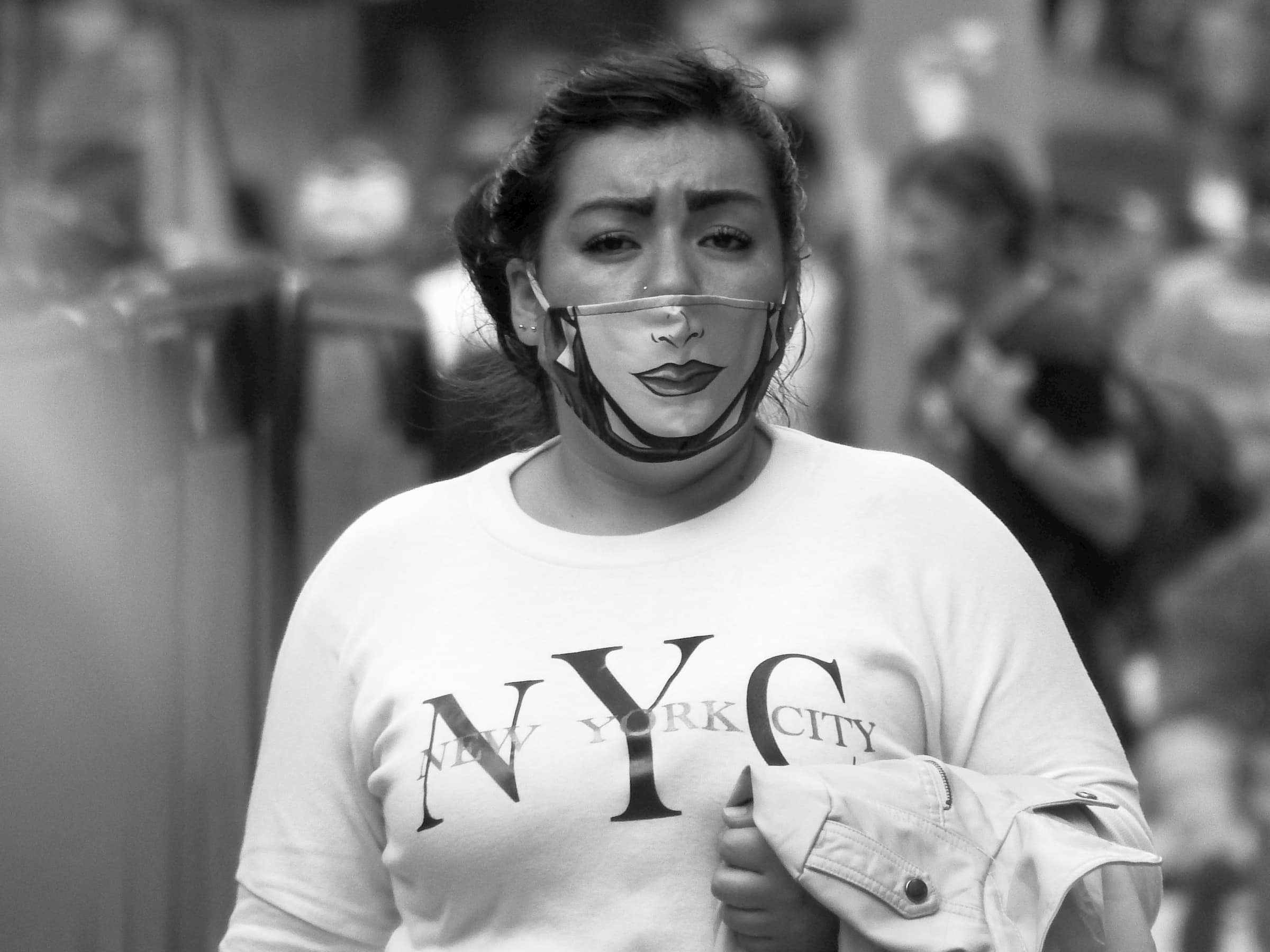
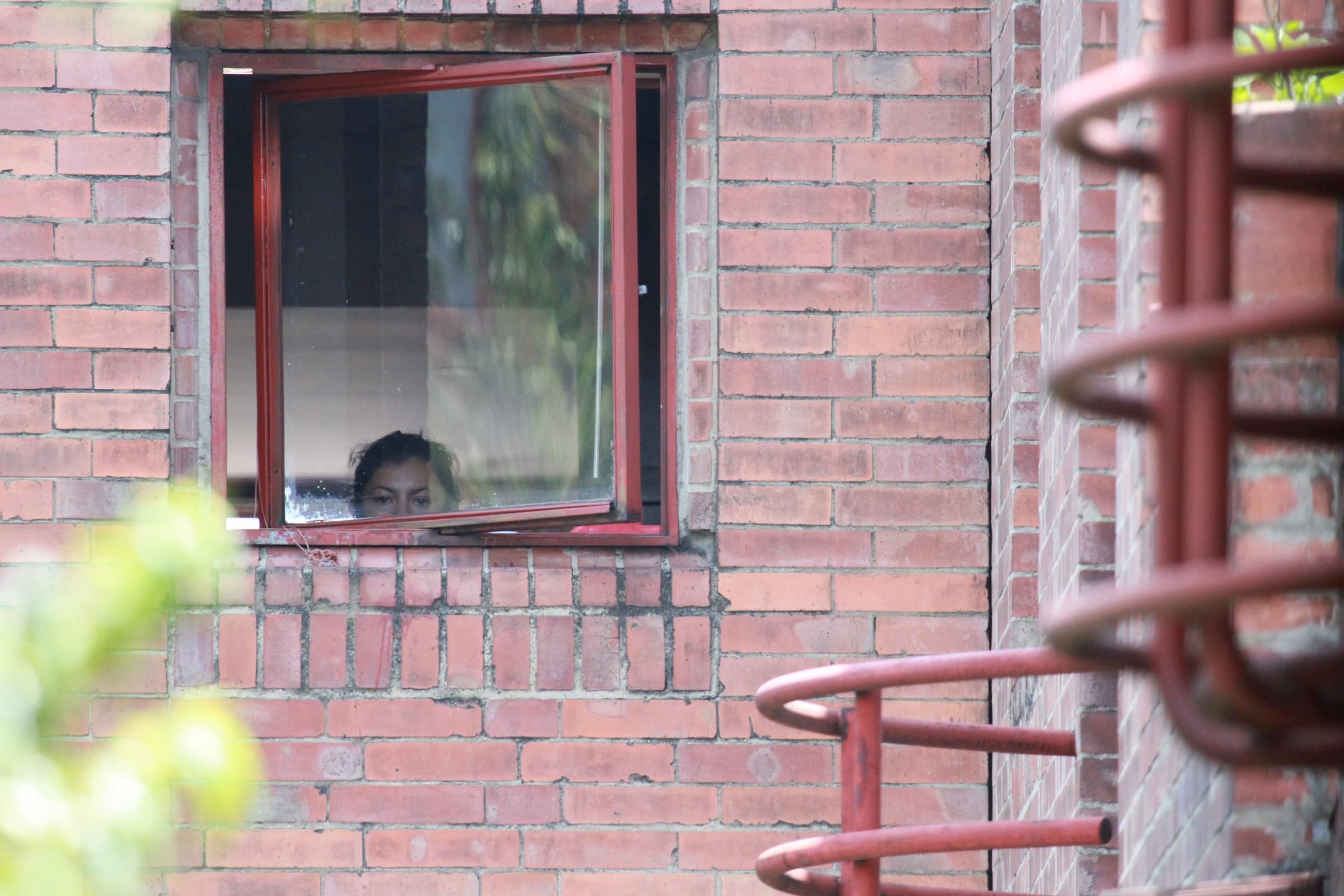
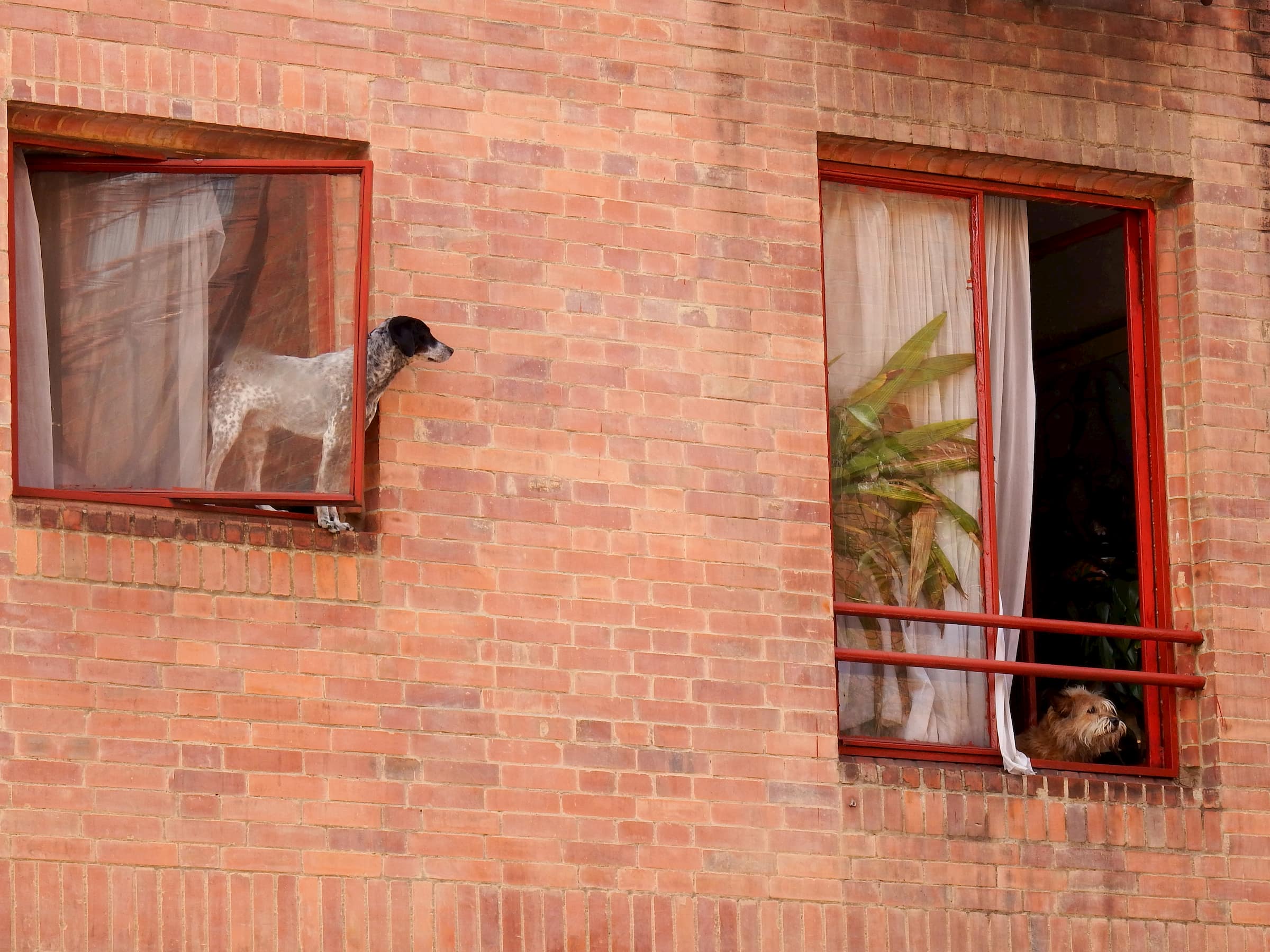
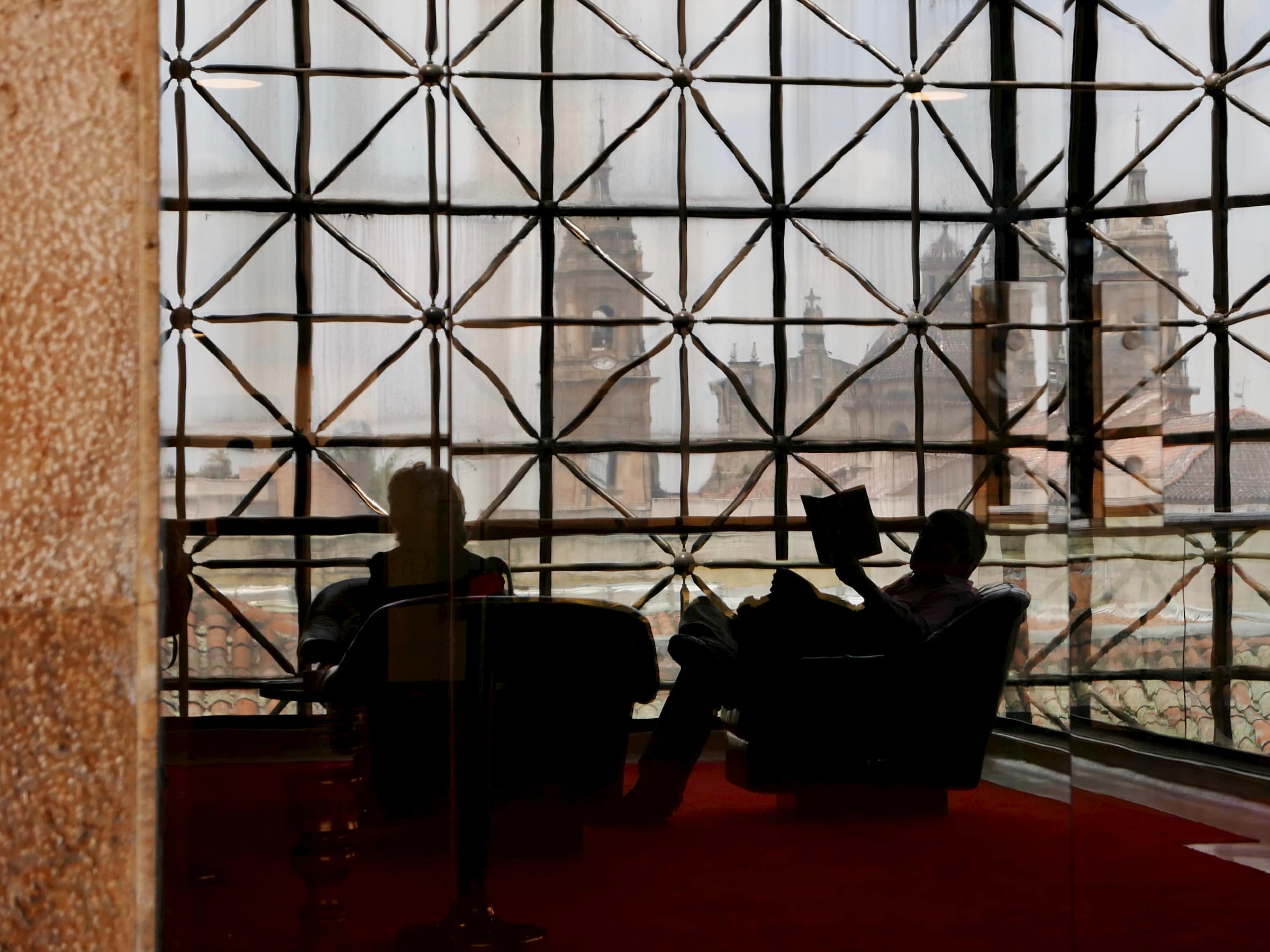
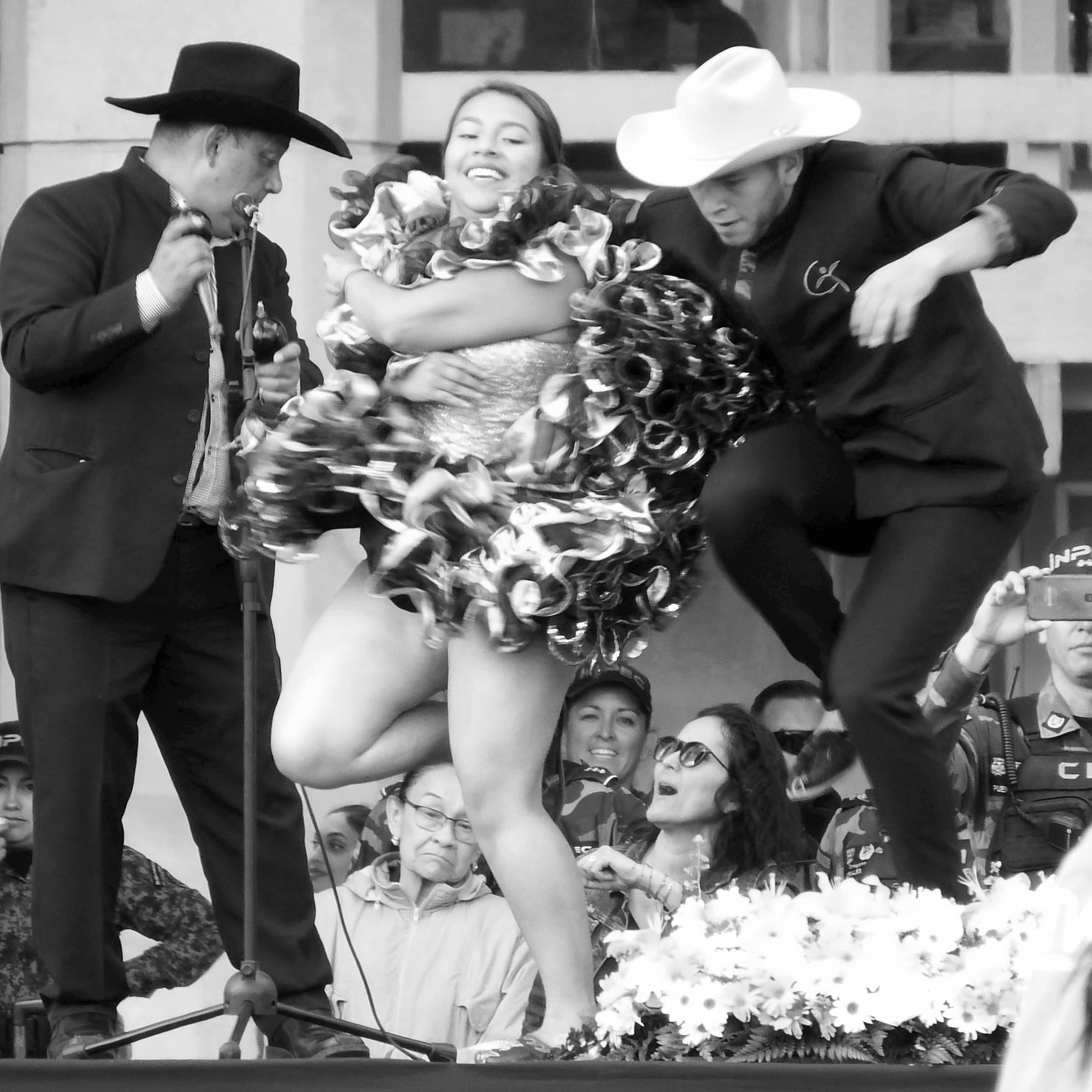
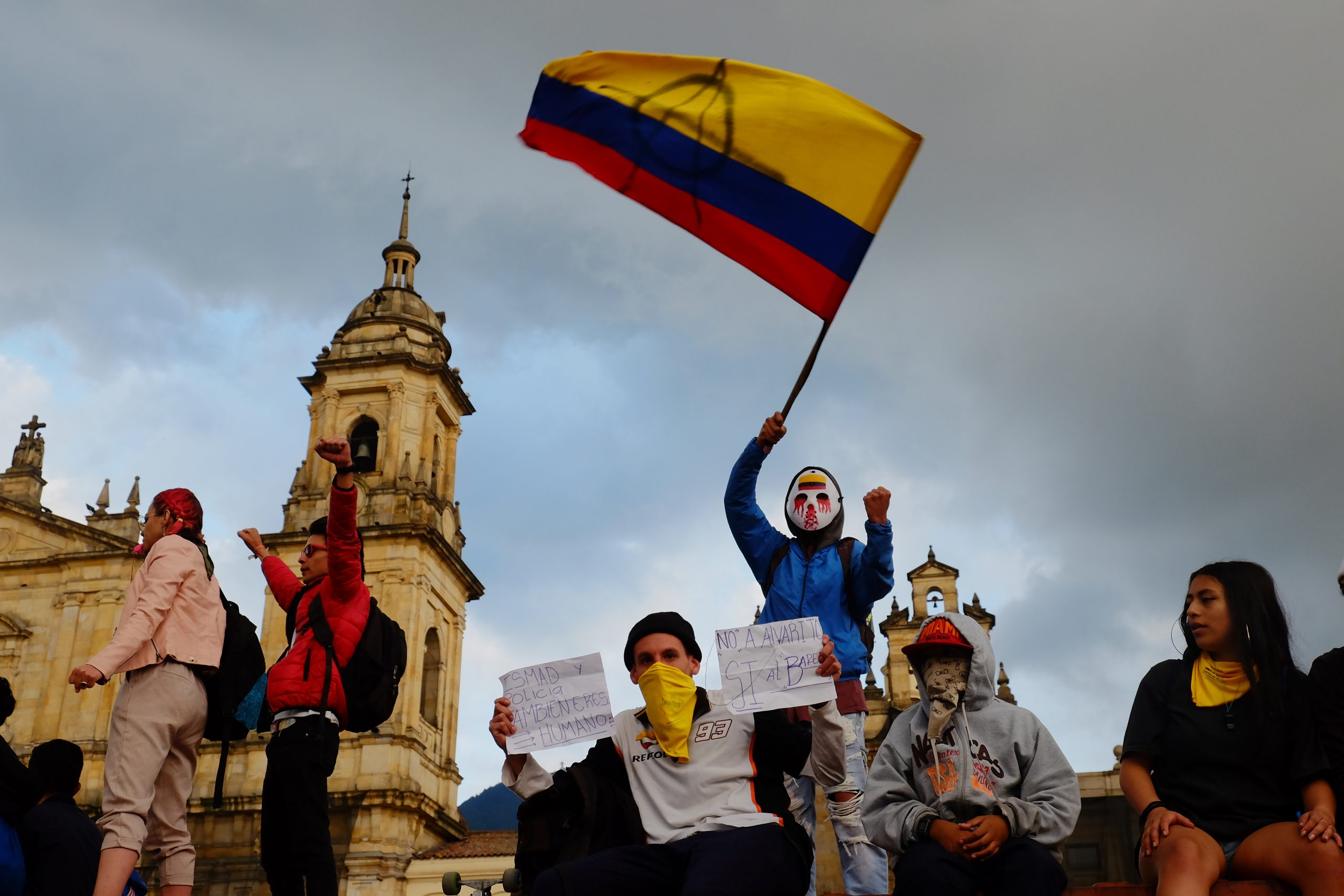
This is a really thought provoking article – thanks for creating a space to bring it into.
A couple of thoughts arise…
1) The notion of a homogeneous ‘middle class’ in the Global North troubles me as a form of social imperialism. (Perhaps the author didn’t envisage this but I’m bringing my own lens to it).
Who gets to decide what this looks like and how it forms? There is a dynamic tension that must run across this type of society, stretching and contracting opportunity, finance and life chances in relation to changing social factors. A broad middle class could buffer this, perhaps, and it would be fascinating to see what happens ‘at the margins’.
2) I’m also being drawn to think about the reality of a class system of more than three classes. Working / Middle / Upper is one structure, but “below” the ‘Working’ are those out of work for whatever reason (health, opportunity etc). And within the ‘Middle’ are the precariat who are one or two life challenges away from the breadline (car engine blowing up, washing machine needing replacement, health issues preventing ‘Middle Class’ work).
It’ll be fascinating to follow the links from this piece to see how those ideas are addressed.